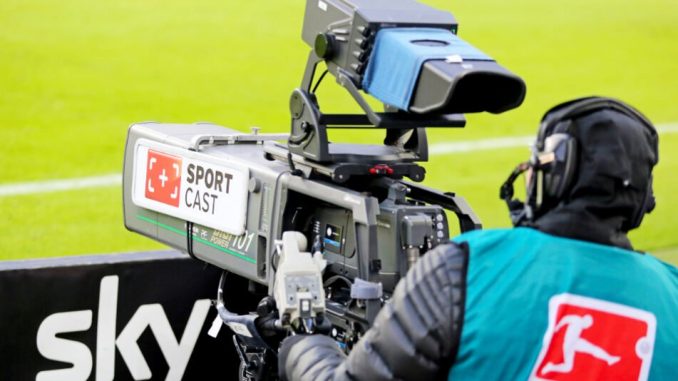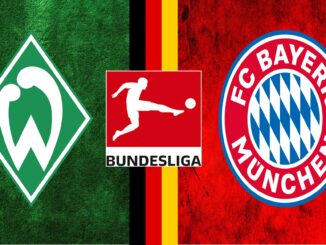
The new four-year deal for the Bundesliga TV rights has been announced in Germany with Sky and DAZN splitting the package between them. The German Football League (DFL) will have €4.4 billion to distribute amongst the top two divisions meaning an annual pay-out of around €1.1 billion per season. This is down from the previous €4.6 billion deal meaning €200 million less to go around.
How that money is shared out has always been a little contentious and it seems the argument over a redistribution is not going away with some of the smaller clubs calling for a change, while the big fish favour the status quo.
As it stands, the distribution of domestic TV money is based on a four-pillar system. Seventy percent of the overall income is calculated based on a five-year ranking for each league, with the last season weighted with a factor (five down to one for the oldest season to go into the ranking).
The second pillar labelled ‘competition’ offers a parachute payment for relegated clubs. It is also based on a five-year ranking and makes up 23% of the money distributed in total. So, these first two pillars represent the lion’s share of the pot (93%) making the third and fourth pillars less lucrative (sporting sustainability and youth work).
The five-year rankings based on league position clearly favour the traditional big clubs regularly finishing in the Champions League places. For example, estimates state that Bayern Munich will receive some €81.9 million based on the current season, whereas Fortuna Düsseldorf would receive about half that amount.
Fortuna’s CEO Thomas Röttgermann yesterday once again repeated the long-held complaint of the smaller clubs. “We have been talking about the widening gap between the clubs for years, but we are doing nothing about it” the 59-year-old told DPA. “The [corona] crisis has held up a mirror to us, so now is the time to change something. We do not need a distribution of money that cements the current situation” he added.
“Thirteen clubs are threatened with bankruptcy in the Corona crisis, despite the steadily increasing TV money. Reduced earnings in the coming season will only exacerbate the situation.”
Mainz are another club demanding a rethink with regards the way the TV money is divided up. “The expected decline in TV funds will hit hard those smaller clubs that, like us, are more dependent on media revenues than on other revenues,” said Jan Lehmann, the Nullfünfer’s commercial director. “In this respect, this new development should also be an occasion to discuss the fairer distribution of media revenues in the spirit of competition in the Bundesliga.”
Perhaps understandably those at the top of the pile are not so keen on a redistribution of the pie with Borussia Dortmund CEO Hans-Joachim Watzke defending the current model saying it helps Germany’s top clubs try to compete at the top level with the best from Spain and England.
“I believe that the status quo is correct. If you try to weaken the league’s driving forces, you weaken the whole league,” the 61-year-old told the newspapers of the Funke media group.
Even though Bayern Munich and Dortmund take the biggest slice of the pie, it still doesn’t come close to the money earned by clubs in the Premier League for example.
In England, where the value of the Sky deal is much higher than the Bundesliga (£2.45 billion per season), 50% of the UK broadcast revenue is shared equally, 25% is based on how often their matches are broadcast, and 25% is based on their league position. The international broadcasting revenues are also equally shared by all clubs. This meant that at the end of the 2018-19 season for example, bottom placed club Huddersfield Town received €100+ million- more than the champions of Germany.
This is the crux of Hans-Joachim Watzke’s argument. Bayern and Dortmund struggle to compete at Europe’s top table as it is, so any reduction in their share would only exacerbate the situation. The DFL needs to decide whether the health and economic well-being of the ‘small fry’ like Mainz is more important than the ‘big fish’, who spread the Bundesliga brand internationally via the Champions League.



